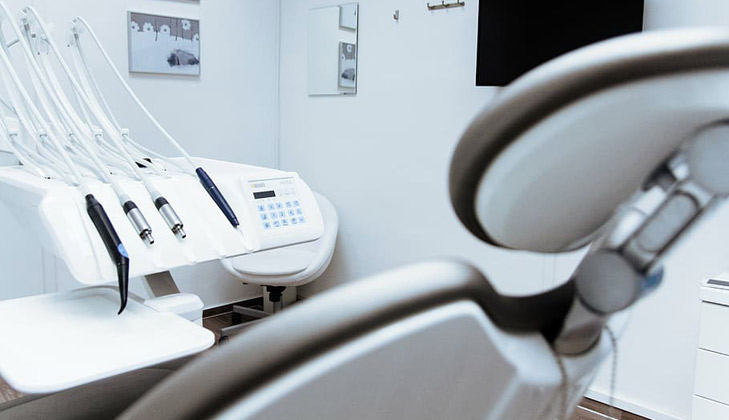Since March, dental providers at Tooth Berry Kids Dental in Carmichael, as well as many other dental providers nationwide, have seen a limited number of patients with practices operating at 50% below normal capacity.
For pediatric dentist Dr. Eman Ghoneim, these numbers were necessary in order to maintain proper social distancing, as per CDC guidelines.
According to a report by the Central Valley Health Policy Institute at Fresno State, dentistry has been one of the hardest hit sectors during the COVID-19 pandemic, for both providers and patients.
In mid-March, the American Dental Association recommended dental practices temporarily postpone elective procedures and only treat patients with urgent and emergency conditions. This recommendation aimed to alleviate the burden that dental emergencies would place on hospital emergency departments and to mitigate the virus transmission in dental settings. With a rise of cases in California, many dental practices opted to temporarily close their doors or to provide emergency services only.
This left many in limbo, including Ghoneim of Tooth Berry Dental.
“Although our practice did not close completely in March, we were only open for emergency patients,” Ghoneim said. “This forced us to postpone all non-emergency patients until June. Since then, we’ve had to adapt to more conservative ways of providing treatments in order to shorten dental visits. In turn, we’ve incurred more expenses for hand hygiene products and proper personal protective equipment.”
As of May 18, the majority of states have allowed dentists to re-open their practices and to resume providing elective dental procedures. The Central Valley Health Policy Institute examined this in its report, “Dentistry During and After the COVID-19 Pandemic: A Dental Providers’ Perspective.”
As a timely response to the pandemic, this work aims to understand the dental providers’ perspective on how dentistry will be impacted by COVID-19 and to make policy recommendations to support the dental community. A survey shared with contacts nationwide showed that dental providers whose practices are located in California made up 34% of the total responses of 47 states surveyed.
“As many dental providers and their staff re-opened their practices, it is essential to understand their perspective on how the COVID-19 pandemic may have a short- and a long-term impact on their practices and on dentistry in general,” said Hayam Megally, a research analyst at the Central Valley Health Policy Institute.
In the report, a few key areas were surveyed, including the effectiveness of infection control and protection at the dental office amid the pandemic; adequacy of financial support offered to dental providers; overall needed support; and changes in the dental practice due to COVID-19.
Of those surveyed, 62% believed the financial support they received from the CARES Act was adequate, while 33% believed it was inadequate. Timely dental practice guidelines and availability of personal protective equipment were other areas of support needed, but not provided, according to the survey.
The institute says increased measures are expected to be implemented to ensure the safety of the dental team and patients, possibly causing a ripple effect as additional expenses will be imposed on dental providers, leading to increased fees for individuals receiving dental services — particularly those on Medicaid.
“It is likely that the rising costs for dental care will widen the gap between Medi-Cal’s currently low payment rates and the actual costs of care, causing more dentists to increasingly limit the number of low-income patients they see,” said Dr. John Capitman, executive director of the Central Valley Health Policy Institute.
According to the institute, patients who will be hit the hardest are the vulnerable and underserved.
“These are individuals who are already experiencing disparity in accessing dental care,” Megally said. “They are communities of color, older adults, patients with special health needs and patients who rely on public insurance.”
In the Central Valley, this is especially true being that Medi-Cal Dental beneficiaries currently access dental care at a low rate. According to the Central Valley Health Policy Institute, in 2015-2016, 28% of pregnant women who relied on Medi-Cal in Fresno County accessed dental care during pregnancy in comparison to 52% who had private insurance.
Among Central Valley Medi-Cal Dental beneficiaries in 2018, only 25% of adults over 21 had annual dental visits.
An online webinar discussing this report and its local impact is scheduled for sometime in August. For more information on the Central Valley Health Policy Institute dental providers’ report, contact Hayam Megally at hmegally@mail.fresnostate.edu.





